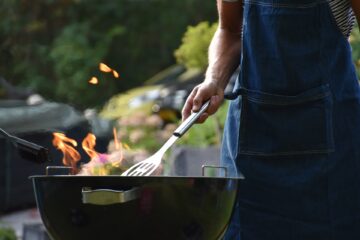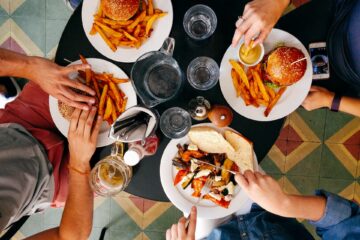Hello and welcome to this article on whether it’s okay to eat soup after wisdom tooth extraction. If you’re one of the millions of people who have had their wisdom teeth removed, you’re likely wondering what foods you can and can’t eat during your recovery period. One question that frequently comes up is whether soup is a safe and recommended food option. In this article, we’ll take a closer look at the topic and provide some helpful insights for a smooth and successful recovery.
Understanding Wisdom Tooth Extraction and Dietary Restrictions
Wisdom tooth extraction is a common dental procedure that many people undergo. During this procedure, one or more wisdom teeth are removed to prevent future dental problems. Following the extraction, it’s essential to follow certain dietary restrictions to aid in the healing process and avoid any complications.
When it comes to what foods to eat after wisdom tooth extraction, it’s crucial to keep in mind that the first few days following the procedure are the most critical. During this time, your mouth will likely be sore, swollen, and may bleed a little. Therefore, it’s important to avoid certain foods that could potentially harm the extraction site or slow down the healing process.
Is it OK to Eat Soup After Wisdom Tooth Extraction?
Many people wonder what foods they can eat after a wisdom tooth extraction, and soup is a popular choice due to its soft and easy-to-eat texture. However, not all types of soup are created equal when it comes to post-extraction dietary restrictions. Before answering whether it’s okay to eat soup after wisdom tooth extraction, let’s take a closer look at the process of wisdom tooth extraction and why certain foods are recommended over others during the recovery period.
After a wisdom tooth extraction, the gums and surrounding tissues need time to heal. The first 24 hours after surgery are crucial, as this is when the blood clot forms that helps to protect the extraction site and promote healing. Certain foods can interfere with the healing process and increase the risk of complications like dry socket, a painful condition that occurs when the blood clot is dislodged from the socket. For this reason, it’s important to follow your dentist or oral surgeon’s dietary recommendations during the recovery period.
Soft, easy-to-eat foods like soup are often recommended after a wisdom tooth extraction. However, it’s important to choose the right type of soup. Chunky, spicy, or acidic soups should be avoided as they can irritate the extraction site and increase the risk of complications. Instead, opt for smooth, creamy soups like potato or butternut squash, which are easy to swallow and won’t aggravate the area around the extraction site.
While soup can be a good choice for a post-extraction meal, it’s important to make sure that it’s not too hot. Hot foods and liquids can increase blood flow to the extraction site, which can lead to bleeding and discomfort. Make sure to let your soup cool down to a comfortable temperature before eating it.
It’s also important to avoid using a straw when drinking soup or other liquids after a wisdom tooth extraction. Sucking on a straw can dislodge the blood clot and increase the risk of dry socket. Instead, sip your soup slowly and carefully from a spoon.
In summary, soup can be a good option for a post-wisdom tooth extraction meal, but it’s important to choose the right type of soup and to make sure it’s not too hot. Remember to avoid using a straw and to take things slowly while eating. By following these guidelines, you can help ensure a smooth and successful recovery after your wisdom tooth extraction.
Other Soft Foods to Eat After Wisdom Tooth Extraction
After wisdom tooth extraction, it is important to eat soft foods that will not irritate the surgical area or require much chewing. Fortunately, there are many soft foods to choose from, and soup is one of the best options. Soup is easy to eat and can be nutritious, depending on the type of soup you choose.
Some good options for soup after wisdom tooth extraction include:
- Broth-based soups: Chicken, beef, or vegetable broth-based soups are good options because they are easy to digest and are not too heavy. They also provide some nutrition in the form of protein and vegetables.
- Creamy soups: Creamy soups like tomato, potato, or mushroom soup can be soothing for your mouth and throat. However, it is important to make sure that the soup is not too hot as it can irritate the surgical area.
- Pureed soups: Pureed soups like pumpkin or butternut squash soup are excellent options because they are easy to swallow and do not require any chewing. They are also packed with nutrients and can be a great source of vitamins and minerals.
- Cold soups: Cold soups like gazpacho or cucumber soup can be refreshing and soothing for your mouth. They are also easy to swallow and do not require much chewing.
It is important to avoid soups that are too spicy or have large chunks of vegetables or meat that require chewing. These can irritate the surgical area and delay the healing process. Additionally, it is important to avoid using a straw when consuming soup, as the suction can dislodge the blood clot and cause bleeding.
Foods to Avoid After Wisdom Tooth Extraction
After wisdom tooth extraction, it is important to avoid certain foods to ensure a smooth healing process. Foods that are difficult to chew or require a lot of effort to swallow should be avoided. Additionally, foods that are acidic, spicy, or crunchy can cause irritation or damage to the surgical site.
Some examples of foods to avoid after wisdom tooth extraction include:
- Hard or crunchy foods, such as chips, popcorn, and nuts
- Spicy foods, such as hot sauce, salsa, and chili
- Acidic foods, such as citrus fruits and tomatoes
- Foods with small seeds, such as strawberries and raspberries
- Carbonated drinks, which can cause discomfort and swelling
It is also important to avoid using straws, as the suction can dislodge the blood clot and delay healing.
It’s important to note that every person’s recovery process may differ, and your dentist or oral surgeon may have specific dietary restrictions for your individual case. It is important to follow their instructions closely to ensure a successful recovery.
Tips for a Successful Recovery After Wisdom Tooth Extraction
After undergoing wisdom tooth extraction, it is important to take proper care of yourself to ensure a smooth and speedy recovery. Here are some tips to help you along the way:
- Rest: Get plenty of rest in the first few days after the surgery to allow your body to heal.
- Use ice packs: Applying ice packs to your cheeks can help reduce swelling and alleviate any pain or discomfort.
- Follow your dentist’s instructions: Be sure to follow your dentist’s post-operative instructions, including taking any prescribed medications as directed.
- Avoid smoking and drinking alcohol: Smoking and drinking alcohol can delay the healing process and increase the risk of complications.
- Eat soft, nutritious foods: Stick to soft foods that are easy to chew and swallow, such as soup, mashed potatoes, yogurt, and smoothies. Be sure to also eat foods that are rich in nutrients, such as protein and vitamins, to help your body heal.
- Keep your mouth clean: Gently rinse your mouth with warm salt water after each meal to keep the area clean and prevent infection.
By following these tips, you can ensure a successful recovery after wisdom tooth extraction and get back to your normal routine as quickly as possible.
Conclusion
In conclusion, soup can be a great option for a soft food to eat after wisdom tooth extraction. However, it is important to make sure the soup is not too hot and does not contain any hard or crunchy ingredients that could irritate the surgical site. It is also important to avoid any foods that may hinder the healing process, such as spicy or acidic foods. By following the recommended dietary restrictions and taking proper care of the surgical site, you can help ensure a speedy and successful recovery after wisdom tooth extraction. Remember to always consult with your dentist or oral surgeon if you have any questions or concerns about your post-operative diet.




